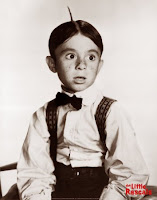 By Eubie Blake & Noble Sissle
By Eubie Blake & Noble Sissle1921
A historic and highly memorable number by the prolific ragtime-era duo of Blake & Sissle. It came from the first successful African-American Broadway musical, Shuffle Along. In fact, it broke the taboo of depicting romantic love between blacks on stage. A huge hit, which made a comeback in 1948 when Harry Truman used it as his campaign song.
Lyrics:
I am here to state, I'm here to relate,
To explain and make it plain that:
I`m just wild about Harry,
And Harry's wild about me;
The heavenly blisses
Of his kisses
Fill me with ecstasy.
He's sweet just like sugar candy,
And just like honey from a bee;
Oh, I`m just wild about Harry,
And he's just wild about,
He can't do without,
He's just wild about me.
Recorded By:
Judy Garland
Peggy Lee
Sarah Vaughan
Jessica Molaskey
Jimmy Dorsey




















.JPG)


















